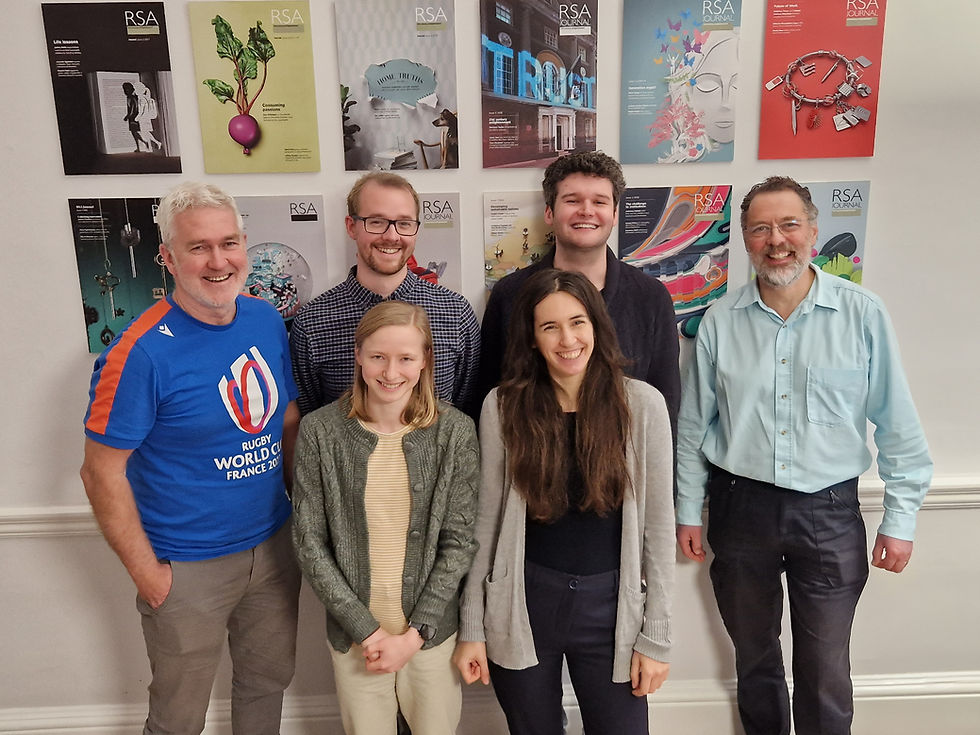🌇 Decarbonising cement: announcing our investment in Cambridge Electric Cement
- Pippa Gawley

- Jul 3, 2024
- 2 min read
It's no secret that we are passionate about reducing emissions from concrete production - it's the most widely used material on earth after water, and is responsible for up to 8% of global CO2 emissions. In 2022, we were proud to lead the preseed round into Biozeroc who are developing bioconcrete, using bacteria to produce calcium carbonate to replace cement completely. Today we are very excited to announce our investment into Cambridge Electric Cement, a Cambridge University spinout who are taking a different route to decarbonising cement via recycled concrete.

Concrete is the most widely used material on earth after water, and is responsible for up to 8% of global CO2 emissions. Concrete itself is made up of around 10-15% cement, water, and aggregate (sand, gravel, crushed stone). The cement and water mix to harden and bind the aggregate together. It is the production of Portland cement that is responsible for the majority of the emissions. The source of emissions are two-fold. Portland cement is made up of lime (CaO), which itself is made by heating limestone (CaCO3) to >1450°C in a limestone kiln and for every tonne of lime produced, 0.8 tonnes of CO2 are released. The high temperatures required for this calcination are provided by natural gas – which itself releases CO2 when burned.

Cambridge Electric Cement’s breakthrough allows them to dramatically reduce both of the sources of emissions. Their technology - first published in Nature in May 2024 - exploits the high temperature of electric arc furnaces used in steel recycling to reactivate recycled cement. Using recycled cement decarbonises the calcination emissions, whilst using renewable power for the furnace decarbonises the emissions for heat. And in replacing the flux typically used in EAFs (also emissions-intensive to produce as it is usually lime) they are reducing the emissions of steel production at the same time. CEC builds upon the Innovate UK-funded £6.5m 'Cement 2 Zero' industrial demonstrator project, with a consortium including industrial partners AtkinsRealis, Balfour Beatty, CELSA UK, Day Group, Tarmac, and the Materials Processing Institute where the technology has been proven in a 7-tonne EAF.
Pippa Gawley, Co-founder and General Partner at Zero Carbon Capital, comments: “We are thrilled to support CEC as they embark on this exciting journey. Their innovative decarbonisation technology paired with the use of existing infrastructure addresses a significant gap and has huge abatement and commercial potential. We believe in the team’s vision and their ability to execute, and we look forward to working together.”

CEC are a spin-out from the University of Cambridge, led by an exceptional founding team of Bill Yost, Dr Poppy Brewer and academic founders Dr Cyrille Dunant, Professor Julian Allwood and Dr Pippa Horton. This £2.25m investment round, led by ZCC, will enable CEC to industrialise production of its sustainable cement at CELSA’s EAF facility in Cardiff, deliver a real-world construction demonstrator, and advance offtake agreements with partners and customers. Cambridge Enterprise Ventures, Legal & General, Parkwalk Advisors, Delph25 and Almanac Ventures are also participating in the round. Following the round, ZCC's Pippa will join CEC as an Investor Director.
We couldn’t be more excited about the potential of CEC’s technology, and about the quality of the team to deliver on this potential.

More about CEC:
Press release on CEC website




Comments